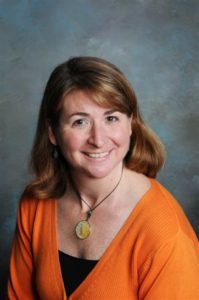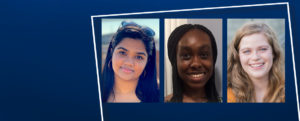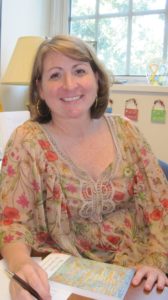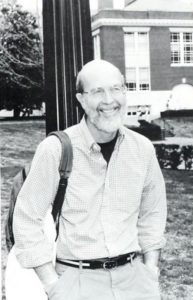
Professor of English Mara Scanlon
Professor of English Mara Scanlon appeared on an episode of With Good Reason radio called “Beyond the Book-Whitmaniacs.” Scanlon told the show’s host about taking her class of self-proclaimed “Whitmaniacs” to the Walt Whitman house in Camden, New Jersey. She says her students were awestruck by being in the intimate spaces where Whitman lived and breathed … including his bathroom. Hear more.



